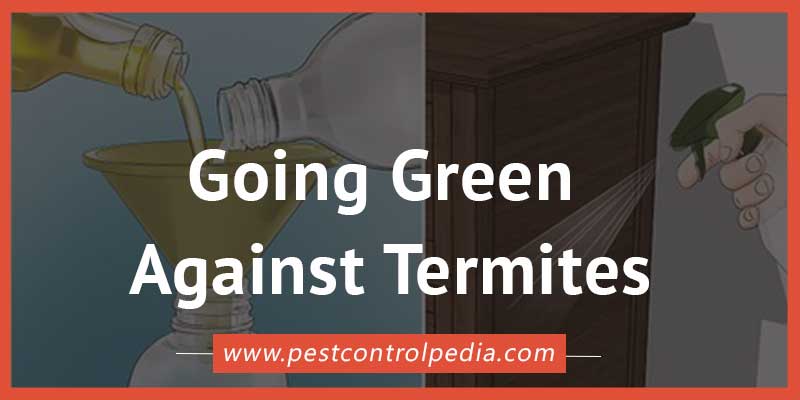Table of Contents
ToggleUnderstanding Termites: The Silent Destroyers
Termites, often referred to as "silent destroyers," are notorious for their ability to feed on wood, causing extensive damage to structures. These insects thrive in moist environments and colonies can quickly grow to thousands or even millions in number. Understanding their behavior and lifecycle is crucial in devising effective control strategies.
Termites are highly organized insects, living in colonies with distinct castes including workers, soldiers, and reproductive individuals. They feed on cellulose present in wood and other plant materials, making buildings, furniture, and even books susceptible to their destruction.
Exploring Termite Biology and Behavior
Termites operate 24/7, making them a constant threat to wooden structures. Understanding their biology and behavior is key to developing effective control measures.
Termites communicate primarily through pheromones, allowing them to coordinate activities within the colony efficiently. Their ability to forage for food sources relentlessly makes them formidable adversaries for homeowners.
Effective Natural Control Methods for a Sustainable Termite Control
Implementing eco-friendly strategies to control termite infestations not only protects your home but also safeguards the environment. Let's delve into some sustainable methods to combat termites effectively.
1. Soil Treatment with Beneficial Nematodes
Harnessing the power of nature, beneficial nematodes offer an environmentally friendly solution to termite infestations. These microscopic organisms prey on termite larvae, effectively reducing their population without harming other beneficial insects or plants.

Beneficial nematodes view termites as their natural prey, targeting them for elimination. These specific roundworms have a remarkable ability to exterminate termites once introduced into their environment. By parasitizing the termites, they infiltrate their bodies and ultimately cause their demise from within. Furthermore, they utilize the termite's body as a breeding ground by depositing eggs inside, thus perpetuating their population.
2. Boric Acid Baits: A Non-Toxic Approach

Boric acid baits are an excellent alternative to chemical pesticides, offering long-term protection against termites. When ingested, boric acid disrupts the termite's digestive system, ultimately leading to their demise. This method is non-toxic to humans and pets, making it a safe option for eco-conscious homeowners.
3. Heat Treatment: Targeted Termite Elimination
Heat treatment involves raising the temperature within infested structures to levels lethal to termites. This eco-friendly method penetrates deep into wood, effectively eliminating termite colonies without the use of chemicals. Moreover, heat treatment can reach areas inaccessible to traditional treatments, ensuring thorough eradication of the pests.
4. Natural Oils as Repellents
Certain essential oils, such as clove oil and neem oil, possess insecticidal properties that repel termites effectively. By applying these oils to wooden surfaces, homeowners can deter termites while avoiding the use of harmful chemicals. Additionally, natural oils offer a pleasant aroma and are safe for the environment.
FAQs (Frequently Asked Questions)
How do termites enter homes? Termites can enter homes through cracks in the foundation, gaps in siding, and even via mud tubes built on exterior surfaces. Ensuring proper sealing of entry points is crucial in preventing termite infestations.
Are natural termite control methods effective? Yes, when implemented correctly, natural termite control methods can be highly effective in eliminating termite colonies. These methods offer sustainable solutions without compromising efficacy.
Can I use vinegar to kill termites? While vinegar may repel termites temporarily, it is not effective in eliminating termite colonies. Opting for proven natural control methods, such as nematode treatment or boric acid baits, is recommended for long-term termite management.
Is professional assistance necessary for termite control? While some natural control methods can be applied by homeowners, severe infestations may require professional intervention. Certified pest control experts have the knowledge and tools to assess the extent of infestation and implement appropriate treatment strategies.
How can I prevent termite infestations in the future? Regular inspections, maintaining proper ventilation, and minimizing moisture around the home are essential steps in preventing termite infestations. Additionally, opting for termite-resistant building materials and landscaping techniques can help deter these pests.
Are natural termite control methods safe for pets and children? Yes, most natural termite control methods are safe for pets and children when used as directed. Unlike chemical pesticides, these methods pose minimal risks to household members and the environment.
Conclusion
Combatting termite infestations effectively while maintaining a commitment to sustainability is achievable through the adoption of natural control methods. By embracing eco-friendly solutions such as beneficial nematodes, boric acid baits, heat treatment, and natural oils, homeowners can protect their properties without harming the environment. Remember, early detection and prompt action are key to minimizing termite damage and preserving the integrity of your home.




